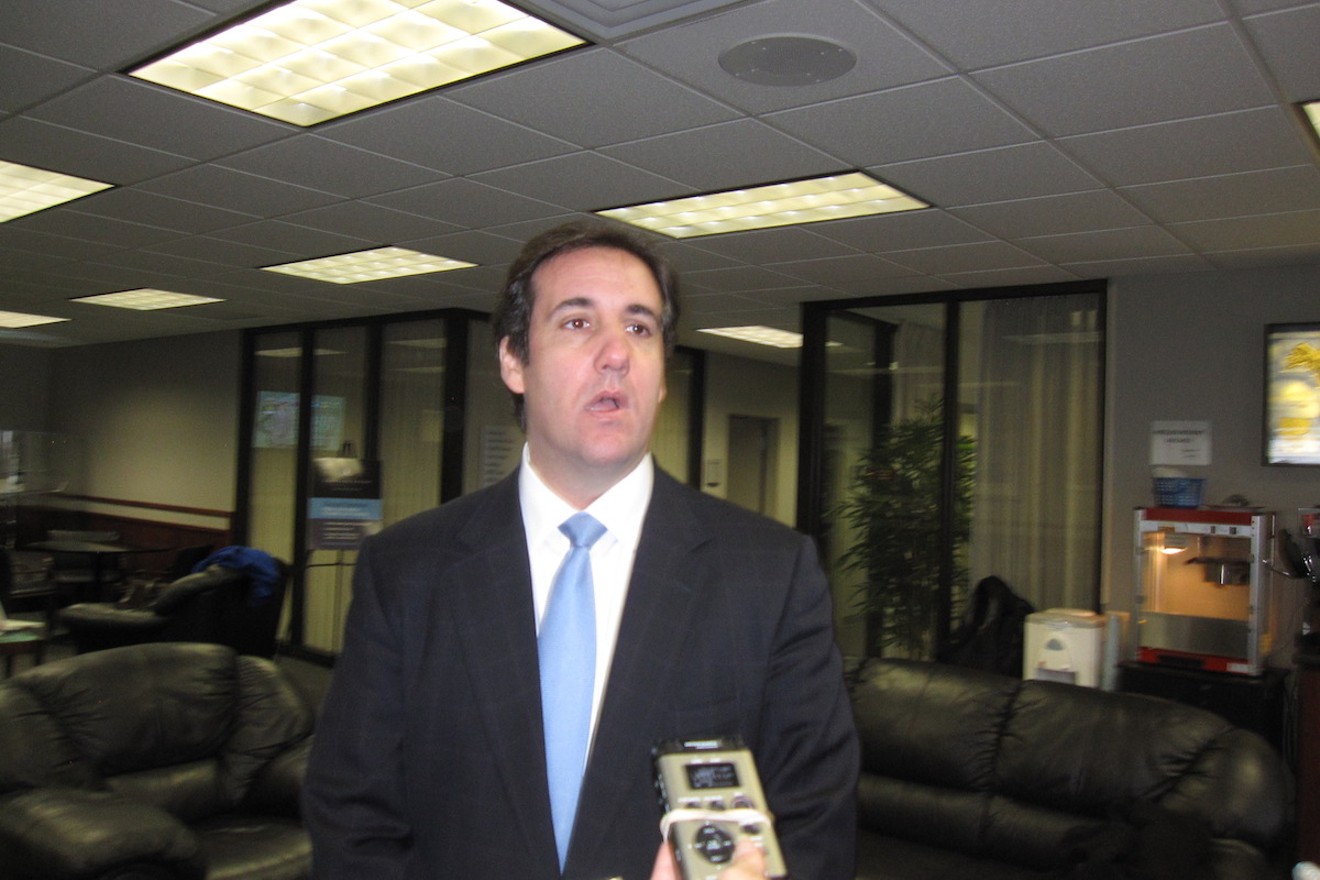"Isn’t it true that President Trump misled at best or, at worst, lied under oath [in a Fort Lauderdale case deposition]?" Rep. Harley Rouda (D-CA) asked Cohen.
"Yes," Cohen answered without hesitation.
It was just one more blight on Trump's disastrous Fort Lauderdale project, which went bust in 2009 and left dozens of condo buyers in the lurch. At least 81 of those buyers sued Trump in Broward County Court, alleging they'd lost more than $6 million in deposits after Trump had committed fraud by misrepresenting his involvement in the deal.
Trump had claimed in promotional materials that he was the developer of the "super luxurious" project, luring many of those investors to buy based on the marketability of his name. But the truth was he had simply sold licensing rights to use his name to developers, one of whom was Russian-born businessman Felix Sater.
Attorneys representing the alleged fraud victims deposed the future president in November 2013 at Trump Tower in New York. Trump was already seriously considering a 2016 run and had spent $1 million on electoral research. He took an oath
Asked about Sater, his partner, Trump acted as if he didn't know him.
Asked how many times he'd conversed with Sater on the phone, Trump said, "Not many."
There was a good reason for Trump to distance himself from his apparent partner. Sater had been criminally convicted in a $40 million stock manipulation scheme run by the Russian mafia in 1998 and had avoided serious punishment by becoming an FBI informant. Before that, he did 15 months in prison after stabbing a man's face with the stem of a margarita glass in a bar fight, breaking the man's jaw, severing nerves, and opening a gash that required more than 100 stitches.

In a Fort Lauderdale video deposition, Donald Trump said he barely know criminally convicted Russian businessman Felix Satir, who had an office near his.
Broward County District Court Records
Rouda: It is worth noting that it is well publicized the direct relationship between the Russian mafia and the Kremlin. Over the years, President Trump was asked how many times he interacted with convicted Russian mobster Felix Sater. In 2013, President Trump testified that, quote, “Not many... If he were sitting in the room right now, I really wouldn’t know what he looked like,” unquote... Isn't it true that President Trump knew convicted Russian mobster Felix Sater in 2013 when he made that statement?
Cohen: Yes.
Rouda: Isn’t it true that because of Mr. Sater’s relationship with the Trump organization that he had an office in the Trump Tower?
Cohen: And on the 26th floor.
Rouda: And the 26th floor is important, why?
Cohen: Because it's Mr. Trump's floor.
Rouda: So he had an office on the same floor as President Trump?
Cohen: In fact, his office when he left became my office.
Rouda: Based on those facts, isn’t it true that President Trump misled at best or at worst lied under oath?
Cohen: Yes.
In the same deposition, Trump went on the defensive about his alleged fraud, using a defense that reminded the attorneys of another former president's answers in a deposition.
Embed from Getty Images"The word 'develop' can be used in a lot of ways," Trump testified. "The word 'developing' doesn't mean we're the developer."
At another point, Trump said, "It depends on how you want to read the sentence."
"It depends what 'is' is?" an attorney asked facetiously.
"No, it depends on how you want to read the sentence," Trump replied.
Trump testified that the real culprit was another developer in the case and that the attorneys should go after him "big league" for failing to get the project finished. Yet Trump quickly admitted he might have abandoned the project himself if he were the developer.
"I've thrown a number of jobs into bankruptcy," he admitted.
Yet Trump prevailed in Broward County court in one civil case on the matter involving two buyers. The larger case involving 81 plaintiffs was later settled for an undisclosed sum.
As for lying under oath, Trump almost surely won't have to face any punishment. Not only are sitting presidents traditionally immune from indictment, but also the statute of limitations would have run out this past November.











